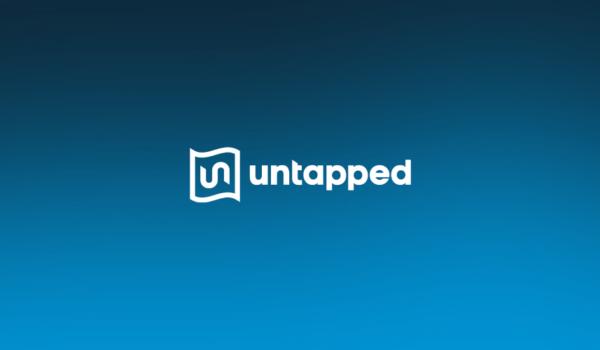Educator Resources
Browse our educator-specific resources — we have classroom tips and tricks, sample syllabi, and more!
Professional Development
Would your school district, post-secondary institution, or business benefit from learning about executive function skills or harnessing the power of neurodiversity?

Let’s collaborate for
student success.
Discover our resources, professional development opportunities, and tools aimed at enriching teaching methodologies, fostering student engagement, and advancing academic excellence.

Supplement Classroom Learning
Implement new techniques to support neurodiverse students in your classroom.
Professional Development
Learn more about our concise informational presentations, as well as our in-depth interactive workshops.
Resources for Educators
Develop effective strategies to keep yourself—and your students—organized and on top of assignments.
students mentored since 2017
of high school students attend a college or university
of first-time students improve their GPA
of students report decreased levels of academic anxiety
Hear more from our community
Subscribe to Our Educator Newsletter
Resources
Helpful resources for educators
Explore our collection of informative and practical resources.






Frequently asked questions
Find quick answers to common questions about our services, coaching approach, and student support.
Executive function (or EF) skills include planning, organization, time management, focused attention, impulse control, task initiation, flexibility, emotional regulation, verbal and working memory, problem-solving, and metacognition. These skills are hosted in the prefrontal cortex, which is the part of the brain responsible for decision-making, attention, behavior, and emotion. (When people talk about our brains not fully developing until our mid- to late-twenties, this is the part of the brain they’re referring to.) In more tangible terms, these are the skills that help us maintain routines, prevent procrastination, and get out the door on time (among other things).
Many people develop these skills in their teens, but sometimes the skills don’t come naturally to everyone. People who have learning challenges like ADHD and dyslexia, those who struggle with anxiety or depression, and many others with no official diagnoses, often need to be taught these skills. With practice, everyone is capable of learning them.
That’s where we come in!
While traditional tutoring aims to improve understanding and performance in specific subject areas, executive function coaching targets the skills necessary for effective learning across all subjects. Untapped’s mentors empower students to understand their own learning processes, develop strategies for overcoming obstacles, and build self-regulation skills. We like to say that we approach executive function skill development through an academic perspective, but our focus is on the cognitive processes behind successful learning. Planning, organizing, etc. through the lens of school provides consistent, tangible ways for mentors and students to recognize and practice these skills. This approach typically facilitates immediate academic improvement, but more importantly, it fosters long-term resilience and adaptability, equipping students with the skills to tackle new challenges on their own.
At the end of the day, we’re less focused on GPA and more focused on increasing independence and building confidence so our students are successful in and beyond school.
Our in-person middle and high school students meet with their mentors at the same time every week for one hour. These sessions, held in the supportive and interactive environment of our Broomfield center, enable students and mentors to build a strong rapport and offer immediate feedback and encouragement.
Remote students and college students meet with their mentors twice a week for 30-minute sessions. These shorter meetings help students stay engaged and focused. Meeting twice a week is especially beneficial for college students—and their workloads—as it allows mentors to help students adjust their weekly plan and course correct when needed.
Regardless of student age or location, mentors reach out throughout the week to check in on progress, help problem-solve any situations that may arise, and provide supportive accountability from a non-parent, non-teacher perspective.
Untapped employs a multifaceted approach to track and measure the progress of our students, ensuring that each step forward is recognized and built upon. We also acknowledge that progress often looks like “two steps forward, one step back.” We begin by establishing clear, individualized goals based on a student’s initial assessment, strengths, and areas for development. Progress is then monitored through a combination of qualitative observations and quantitative metrics, including the completion of specific tasks and/or assignments, tracking grades, improvements in time management and organizational skills, and reflections on learning experiences. Regular check-ins with students and parents provide opportunities to assess growth, address challenges, and adjust strategies as needed. This allows us to celebrate successes, big and small, and ensures that our mentoring remains aligned with each student’s evolving needs.
Mentors at Untapped undergo a comprehensive training program designed to equip them with the knowledge, skills, and sensitivity required to effectively support students with diverse learning needs. Here’s an overview of the training process:
- Foundational Knowledge: Initial training sessions focus on foundational knowledge in developmental psychology, educational psychology, and an understanding of neurodiversity, including ADHD, dyslexia, and ASD.
- Executive Function Skills: Mentors receive in-depth training on executive function skills, specifically on recognizing deficits and taking action to target that skill development in a way that does not make students feel insufficient, attacked, or “less than.” This training incorporates strategies that aid in learning and skill development that benefit ALL students, and not only those with learning differences.
- Ethical and Privacy Training: Mentors are thoroughly trained on ethical considerations and privacy laws relevant to working with minors and sensitive information. This ensures all interactions and data handling comply with high standards of confidentiality and integrity. Mentors are also required to complete mandatory reporter training once a year.
- Cultural and Contextual Sensitivity: Recognizing the diverse backgrounds of students, mentors are trained to approach their work with cultural and contextual sensitivity. This prepares them to respect and understand different family dynamics, beliefs, and values.
- Ongoing Professional Development: Beyond initial training, mentors engage in continuous professional development, including workshops and peer learning sessions. This ensures they remain updated on the latest research, techniques, and tools in education and psychology.
- Feedback and Supervision: Regular feedback sessions and supervision are part of the training and development process, allowing mentors to refine their skills, discuss challenges, and continuously improve their effectiveness.
Untapped’s training program ensures that mentors are not only well-prepared to meet the academic and developmental needs of their students but also support their emotional and psychological well-being.
Here’s a step-by-step overview of the enrollment process:
- Initial Inquiry: Parents or guardians start by reaching out to Untapped through our website, phone, or email to express interest in our mentoring programs. This initial contact includes a brief discussion about the student’s needs, challenges, and goals.
- Intake Meeting: Following the initial inquiry and the resulting phone call, an “intake” is scheduled. This meeting can take place in person, over the phone, or via a video call, but its purpose is to provide an opportunity for parents and students to learn more about Untapped, discuss specific needs, and ask any questions they may have. During this meeting, Untapped employees will get a feel for the student’s academic skills, executive function challenges, learning styles, and any specific challenges or areas of concern. Based on that information, they can recommend a mentor to Untapped’s scheduling coordinator. This match is based on the student’s needs, personality, interests, and the mentor’s expertise, teaching style, and experience. Ensuring a good fit is crucial for building a positive and productive mentoring relationship.
- Enrollment: Once a mentor is matched and the program is selected, the formal enrollment process begins. This includes setting clear, achievable goals for the student, establishing a schedule for sessions, and discussing any logistical details.
Reach out now to start the process!
